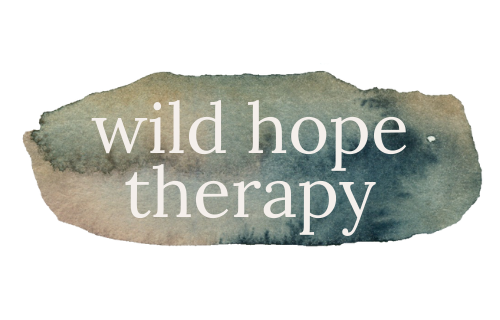book review: “Untamed” by Glennon Doyle
By: Samantha Hoch, LPCC-S
Glennon Doyle is an author, podcaster, activist, and philanthropist. “Untamed” is a memoir about her life including personal growth and insight, mental health and addiction, love, family, and activism. She tells a story of finding herself through a feminist lens, sharing her journey of healing, finding love, and attaining personal freedom in a society that can tend to dictate who we should be and what we should want.
A friend of mine recommended “Untamed” and when I first started to read it, I admit that I felt somewhat uncomfortable and annoyed. The way Doyle calls the reader to break the rules, challenge internal inconsistencies, and listen to a collection of embarrassing accounts about her put me a bit outside of my comfort zone and made me think about some things I had been avoiding. I read it a couple of chapters at a time and as I leaned into it more, I reflected on what changes I might want to make in my life to sit with the painful feelings more often, find my voice, and start living more fully and authentically. I would recommend this book to anyone who feels they may need to be challenged to grow
Doyle was in an unhappy marriage with her ex-husband with three children when she fell in love at first sight with Abby Wambach, retired professional soccer player, speaker, author, and activist. In her book, she takes us through the emotional rollercoaster of feeling “caged” to finding her “keys,” and eventually embracing her wild spirit and being “free,” of which are the titles of the three parts of her book “Untamed.”
Doyle opens her book with a story about taking her children to the zoo and seeing the “cheetah run.” A cheetah raised in captivity with a dog companion is trained to chase a stuffed animal tied to the back of a car. The author urges the reader to examine what it must be like for the cheetah to never have known what it is like to be wild and run free and have to be grateful for the lesser and much more limited life she has now, which is a parallel to oppression. Also in the first part of the book, Doyle discusses some of her past including struggles with eating disorders and addiction; being put in specific cultural, religious, gender, and institutional boxes; and generally feeling “caged” in her life.
In the second part of her book, Doyle discusses how she finds the “keys” to unlocking her freedom. Doyle emphasizes the importance of sitting with all of your feelings, including those which can be quite painful. The reader gets permission to feel their pain and not be consumed by it, and further use that pain to help them become a more authentic version of themselves. Doyle also discusses how she learned how to connect with what she calls “the Knowing.” As you read how Doyle connects with her inner spirituality and gut feelings, you begin to realize how using the mantra “be still and know” can help you let go of what you cannot control and realize that you have all of the answers if you reach deep enough within yourself.
In the final part of the book, Doyle tells many anecdotes about her journey to being “free” and how to embrace that life is messy and unpredictable, and can also be full of love, joy, and peace. One anecdote I especially appreciated was about Doyle getting annoyed when her wife Abby comes in the room and exclaims she is so excited to join a recreational hockey team for fun. Doyle is honest in asking herself, bitterly, who has the time and money for fun? Sarcastically, she thinks, “Must be nice to have time for a thing.” Then Doyle checks herself on this and encourages the reader to do so as well. “I think we are only bitter about other people’s joy in direct proportion to our commitment to keep joy from ourselves. The more often I do things I want to do, the less bitter I am at people for doing what they want to do.” This statement really resonated with me because I think it is easy to fall into the trap of the day-to-day responsibilities and not make enough time for fun, further being upset about others in our lives who do make time for fun and playfulness. I like Doyle’s reminder to take time for ourselves and also to be happy for other people’s joy.
Starting this book, I would not have thought that I might be “caged” in some ways too. I would guess many of us like to think we are living freely and are truly “untamed.” Doyle has helped me take a closer look at how I am feeling, thinking, and acting and if it is really in alignment with my most important values, or if I might too, be “caged”. I have picked up “Untamed” again, reading certain chapters that were the most challenging, but also most rewarding, encouraging me to take a look at how I can be more present and find more joy and freedom in my own life.
